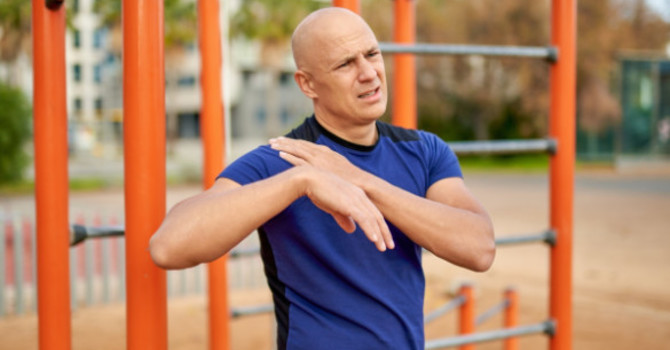What is Golfer’s Elbow?
Golfer's elbow, medically known as medial epicondylitis, is a condition characterized by pain and inflammation on the inner side of the elbow, where the tendons of the forearm muscles attach to the bony prominence of the elbow. Despite its name, golfer’s elbow can affect anyone engaging in repetitive hand, wrist, or forearm movements, not just golfers.
Common Causes
Golfer's elbow is typically caused by overuse or repetitive stress on the forearm muscles and tendons, leading to small tears and irritation.
Common activities that can lead to this condition include:
- Swinging a golf club or racket sports with improper technique.
- Repeated gripping or wrist flexion during activities like carpentry, typing, or gardening.
- Lifting heavy objects, especially with improper form.
Common Symptoms
The primary symptoms of golfer’s elbow include:
- Pain and tenderness on the inner side of the elbow, which may extend down the forearm.
- Stiffness in the elbow, especially during movement.
- Weakness in the hand and wrist.
- Tingling or numbness, particularly in the ring and little fingers.
How we help
Our care offers a non-invasive approach to managing golfer’s elbow by addressing the root cause of the condition and promoting natural healing.
KC Spine and Sport utilize the following techniques:
- Soft Tissue Therapy: Dry needling, FAKTR, and active release techniques can help reduce muscle tension, break up scar tissue, and improve blood flow to the affected area.
- Joint Adjustments: Gentle adjustments to the elbow, wrist, shoulder, and spine can improve alignment, reduce strain on tendons, and enhance overall function.
- Rehabilitation Exercises: We prescribe targeted stretches and strengthening exercises to restore mobility, build resilience in the forearm muscles, and prevent recurrence.
- Ergonomic and Postural Guidance: Advice on improving posture, proper technique during activities, and ergonomic adjustments can help minimize repetitive strain.
Our goal is to alleviate pain, restore function, and enhance the body’s ability to heal itself.
If left untreated, the condition may worsen, potentially leading to chronic pain or limited mobility. Seeking professional care promptly can help you return to your daily activities and favorite sports pain-free.
Have A Question About Elbow Pain In Overland Park, KS?
We will be in touch as soon as possible.
Blogs
Recent articles from the blog.



